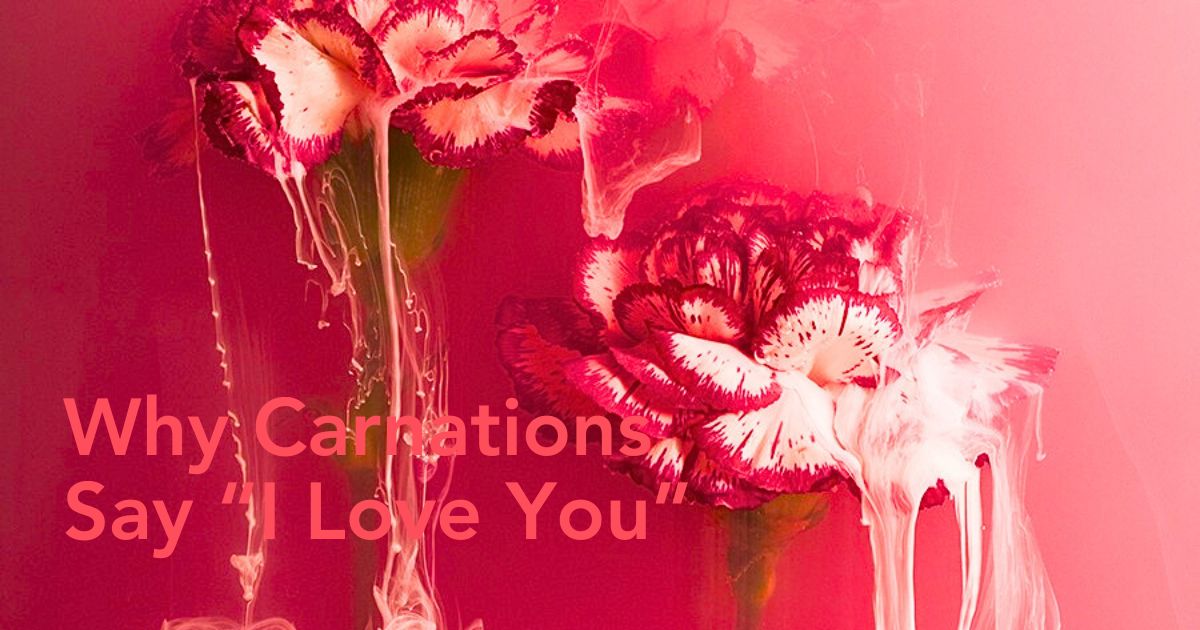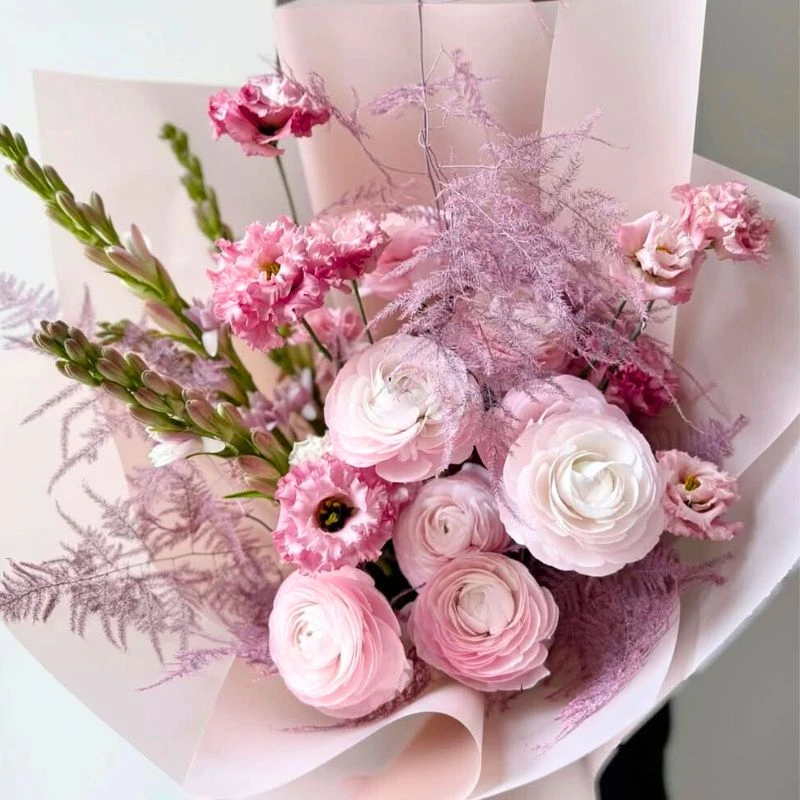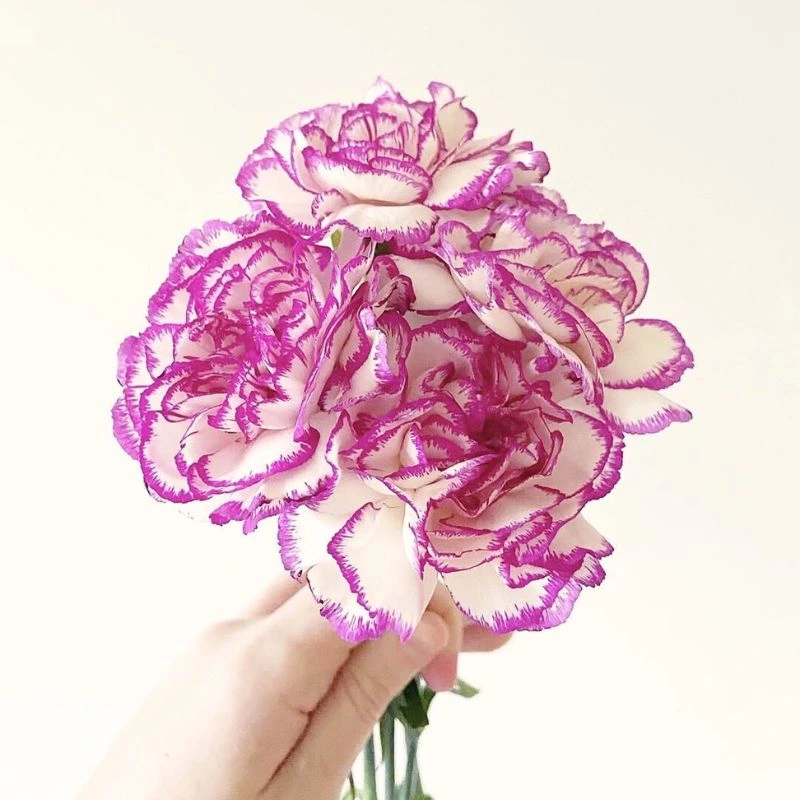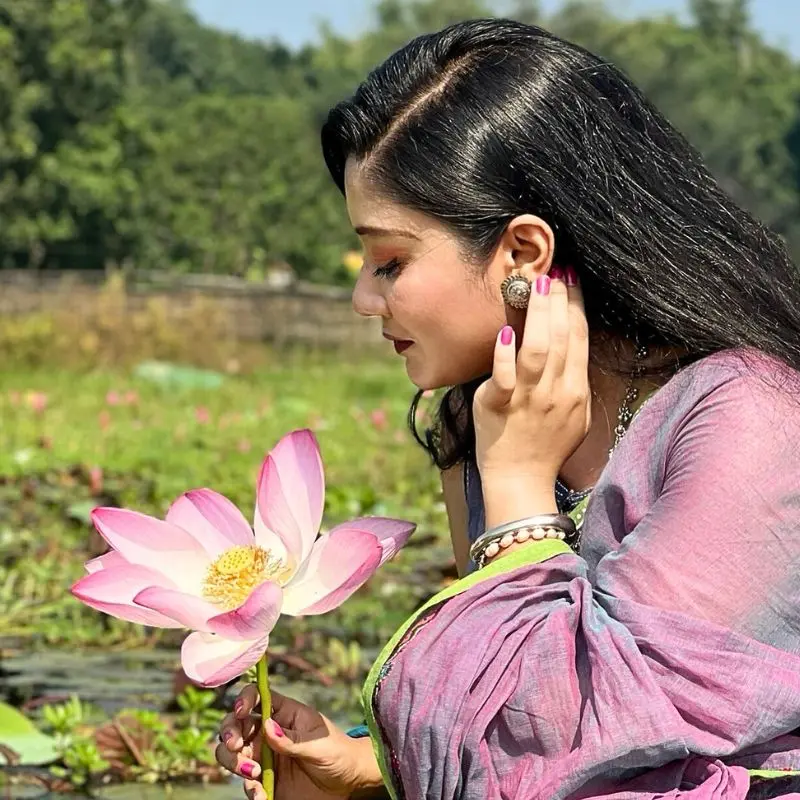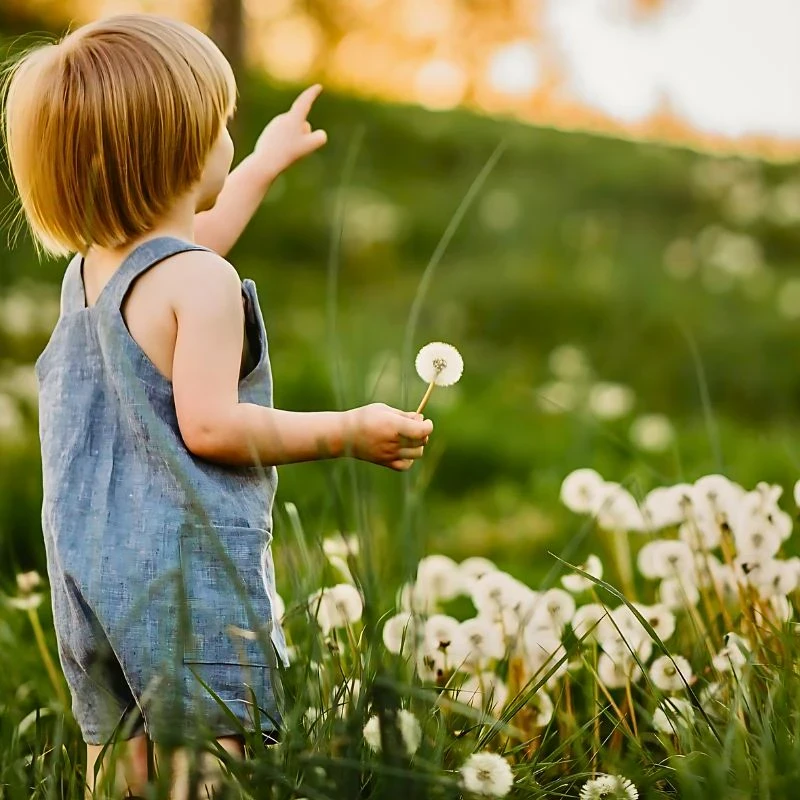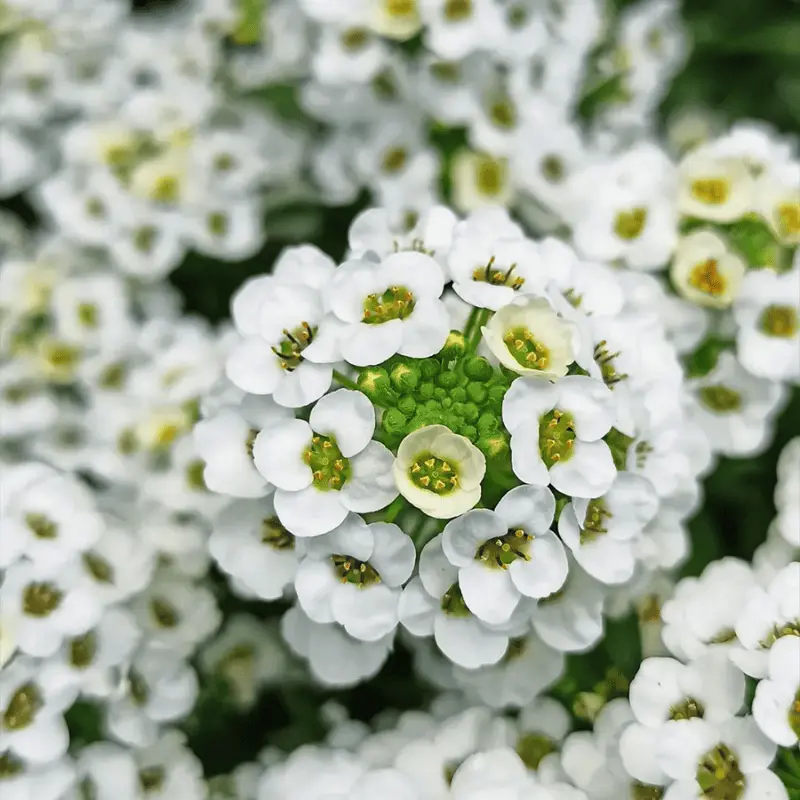Flowers are the most popular Mother's Day gift, but did you know there is an official Mother's Day flower? It turns out that carnations are historically and traditionally known as the flower for honoring mothers. While you may prefer roses, hortensias, or tulips for Mother's Day, carnations have a long history. Learn why they are the official flower for mothers, what they represent, and how to care for them.
Flowers as a Symbol of Appreciation and Love for Mother's Day
Mother's Day is a day to recognize and appreciate the most important woman in our lives: our mothers. It is a day to express our gratitude and love for all that they have sacrificed for us. One of the most popular ways to do so is to give them flowers. But why do we buy our mothers flowers on Mother's Day? Let's look into the reasons for this tradition.

Flowers are symbols of love and appreciation. They are a lovely and thoughtful way to convey our feelings for someone special. Flowers have long been used as gifts to convey emotions and sentiments. In fact, the tradition of giving flowers on Mother's Day goes back to ancient Greece, where they celebrated a festival in honor of the mother of the gods, Rhea. However, it was Anna Jervis who began what is now the celebration of the annual Mother's Day to honor and express love for mothers worldwide. She marked the history of gifting flowers (especially carnations) to her mother, and here is where it all begins.
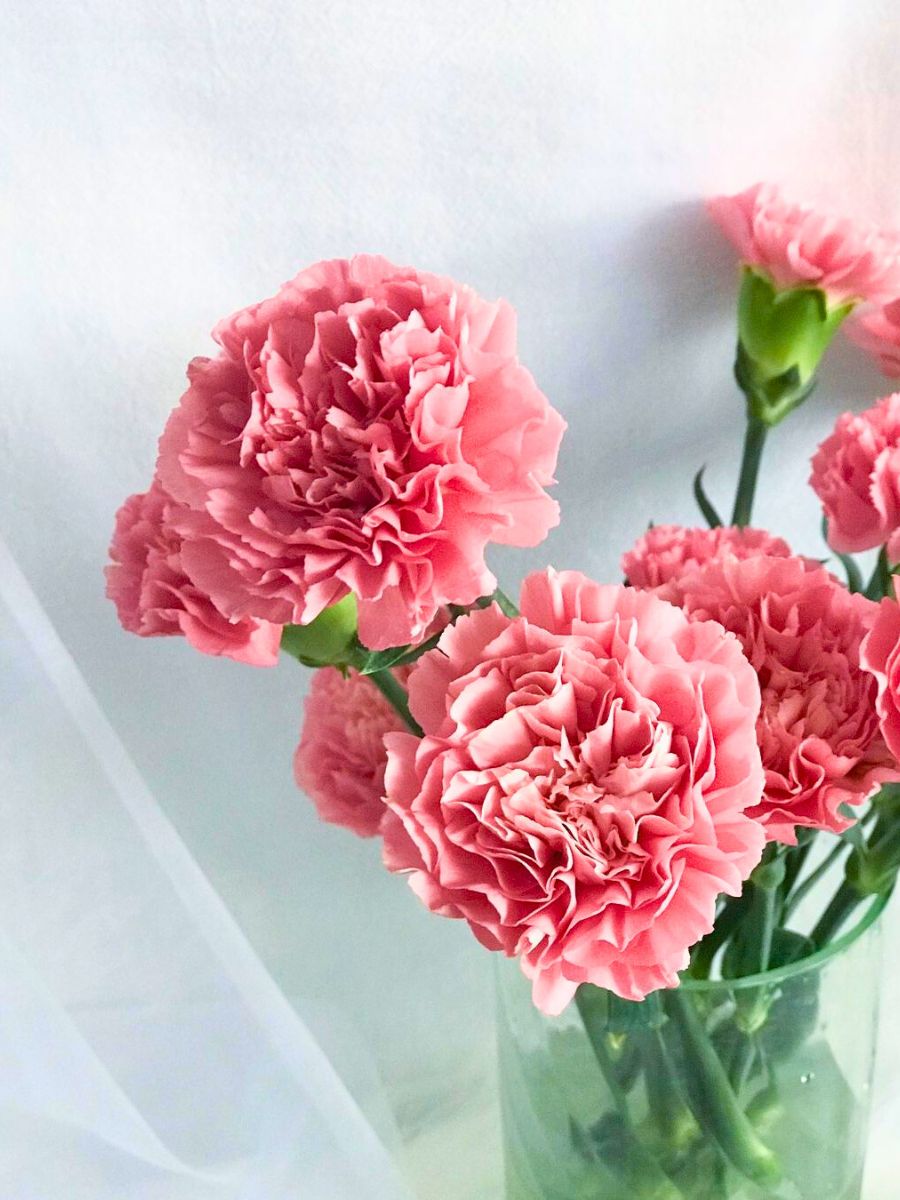
Celebrating Mother's Day Worldwide
Mother’s Day is celebrated on different dates around the world, shaped by each country's traditions and cultural history. In many places, such as the United States, Latin America, Canada, Australia, Germany, Japan, South Africa, and India, it is observed on the second Sunday of May. In the United Kingdom and Ireland, it falls on Mothering Sunday, which is the fourth Sunday of Lent, usually in March.

Spain, Portugal, and Hungary mark the occasion on the first Sunday of May, while France and Sweden typically celebrate it on the last Sunday of May (with France adjusting if it overlaps with Pentecost). In Mexico, El Salvador, and Guatemala, Mother’s Day is celebrated on May 10 every year. Thailand observes it on August 12, which is also the birthday of Queen Sirikit. In Russia and many Eastern European countries, the day is often acknowledged through International Women’s Day on March 8, which honors mothers and women more broadly.
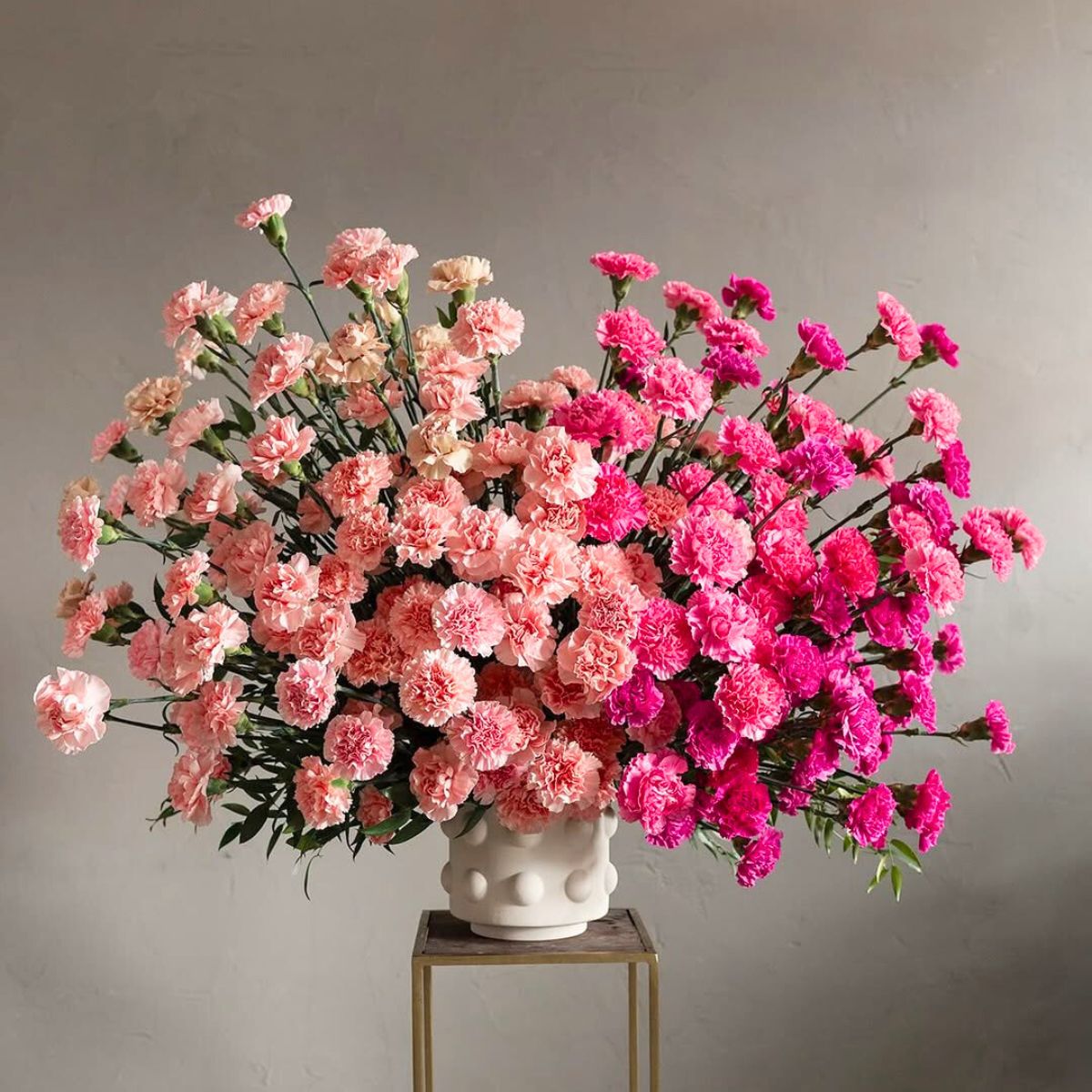
Photo: @botanicart
The Special History Behind Mother's Day and Carnations
Now, after marking when you celebrate Mother's Day, you must know about the history of this important day and its relation to carnations (botanical: Dianthus). The last two millennia have seen the development of carnations. Greek, Italian, Spanish, and other Mediterranean nations are the native home of the wild carnation. Greek literature was the first to make any reference to carnations 2,000 years ago. Diana, the goddess, developed feelings for a shepherd. Diana was upset since he didn't show her love and affection in return. He was dropped to the ground after she removed his eyes. According to myth, his remains produced carnations.
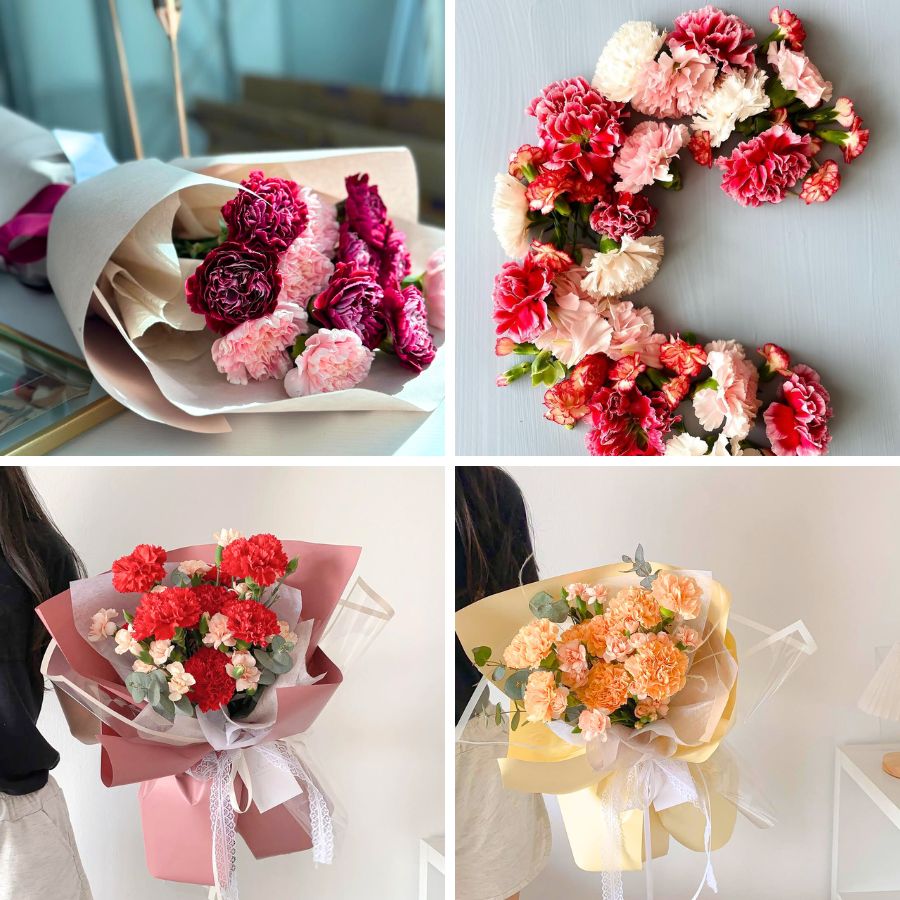
It developed to be the preferred flower for Greek ceremony crowns and garlands. Another piece of history dates back to Christian tradition when the Virgin Mary sobbed as she saw Jesus carrying the cross. Carnations grew where her tears fell, and for this, pink carnations are now thought to stand for a mother's endless devotion.
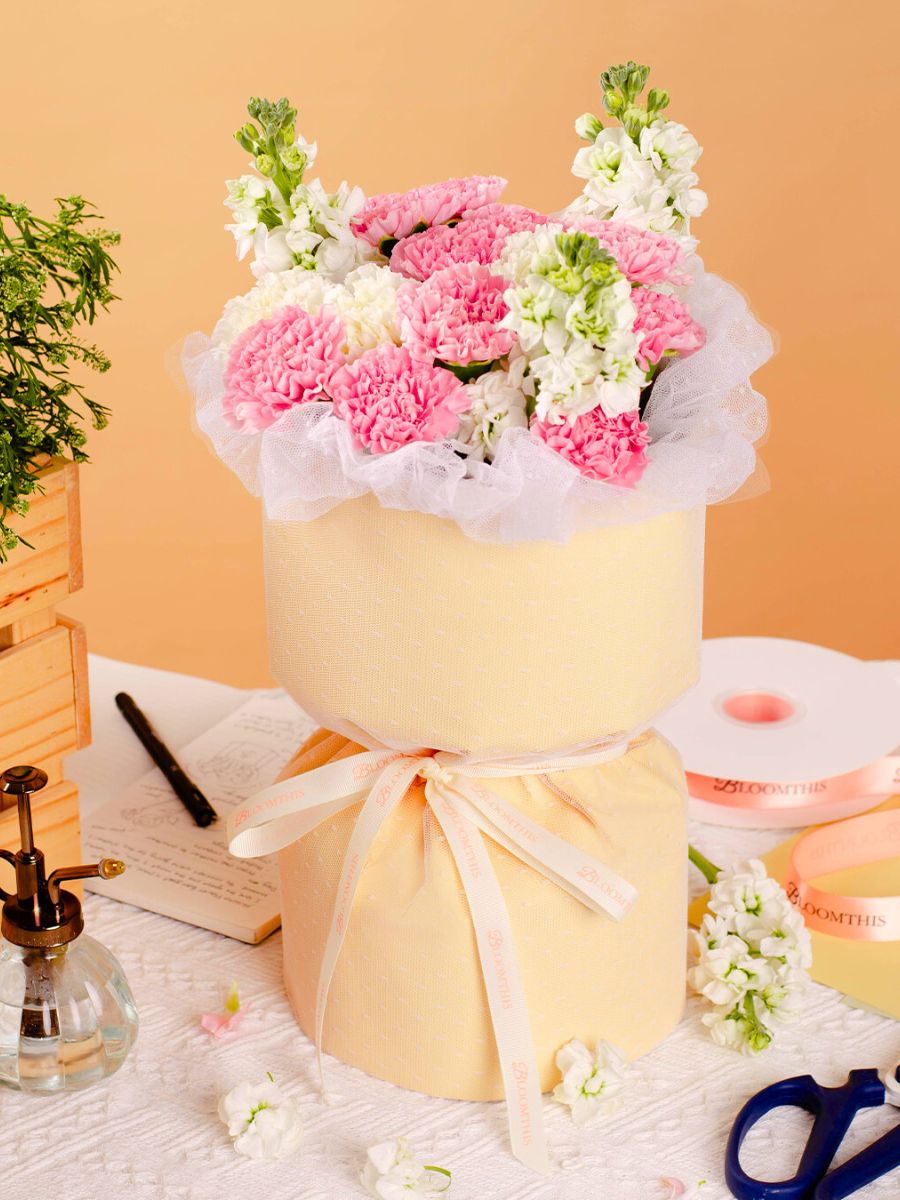
While mothers have been honored and celebrated since ancient Greek and Roman times, in the United States, Mother's Day only became an official holiday in the early 1900s. The significance of carnations and Mother's Day goes back to Anna Jarvis and the origins of this special day.
Moms and grandmothers alike can thank Philadelphia activist Anna Jarvis for the carnation tradition — and even the holiday itself. On May 10, 1908, Jarvis sent hundreds of white carnations, her late mother’s favorite flower, to her hometown church in West Virginia for a celebration honoring all mothers. That same day, she hosted a similar event in Philadelphia.
Over the next few years, as the number of Mother’s Day celebrations across the country increased, so did the popularity of the white carnation, which came to symbolize a mother’s love. Thanks to Jarvis’s campaigning, Mother’s Day became a national holiday in 1914 under President Woodrow Wilson.
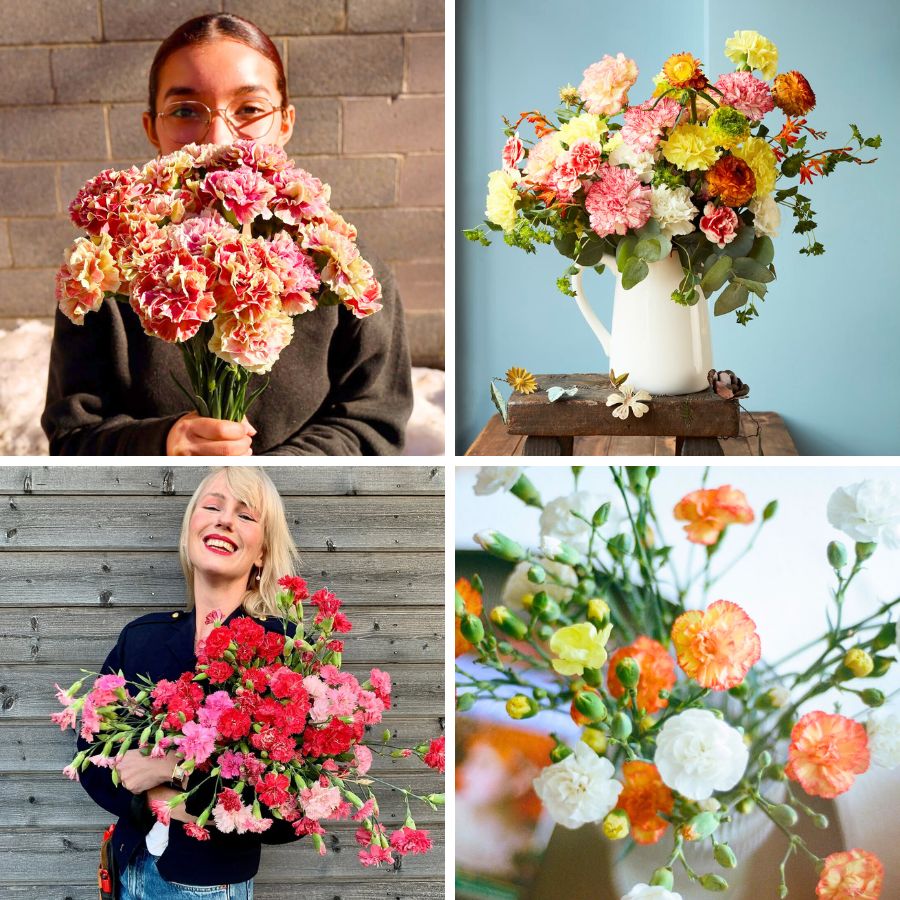
The West Virginia church where that first service was held continued the tradition by passing out carnations annually for mothers. Nearby neighborhoods and churches also began this tradition; thus, carnations became associated with Mother's Day.
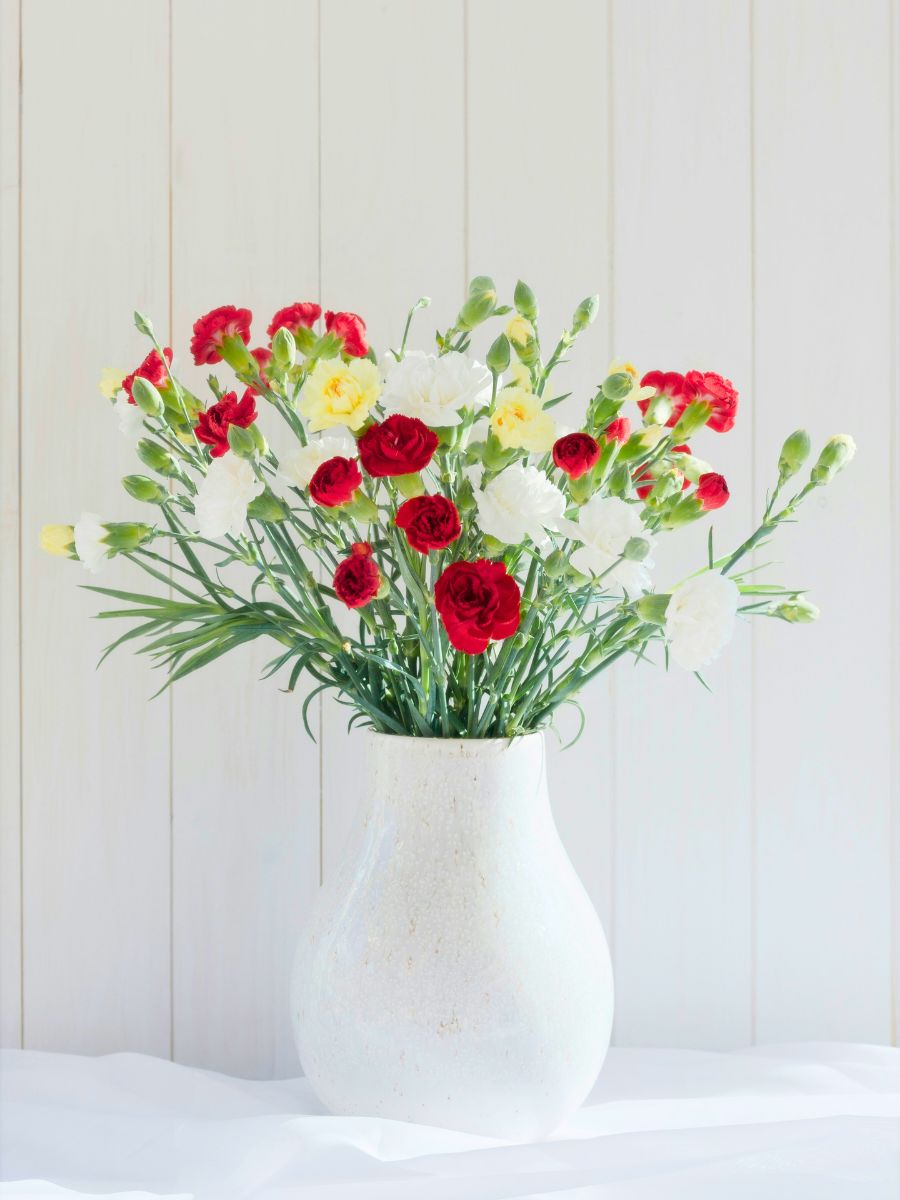
Photo: @nataliekinnear from Unsplash
For special occasions like Mother's Day, white and red carnations are widely gifted around the world because of their significance. True carnations have a characteristic, spicy, vaguely clove-like aroma that many moms adore, as well as a ruffly look that holds its own in floral arrangements.
Modern Meaning and Symbolism of Carnations By Color
There is a whole bouquet of meanings and symbols associated with carnations. Predominantly, carnations are associated with love, fascination, and distinction. They not only represent feelings and emotions but mark special occasions as well, such as Mother's Day.

White Carnation
The official flower for Mother's Day, according to Anna Jarvis, the holiday's creator, is a white carnation. She chose carnations as the official flower of Mother's Day because of their symbolic meaning. White carnations once stood for unadulterated affection, almost like a mother's love. White carnations also stand for innocence, purity, sincerity, and simplicity. Someone with a tender heart or who seems to have a child at heart (thus why they seem so pure) will love receiving it as a gift. Over time, though, they came to symbolize mothers who have passed away. People sometimes leave white carnations at their mother's grave.
Jarvis once said:
"White carnations typify some of the virtues of motherhood…It's whiteness symbolizes the truth, purity, and broad charity of mother love; its fragrance, her memory, and her prayers."
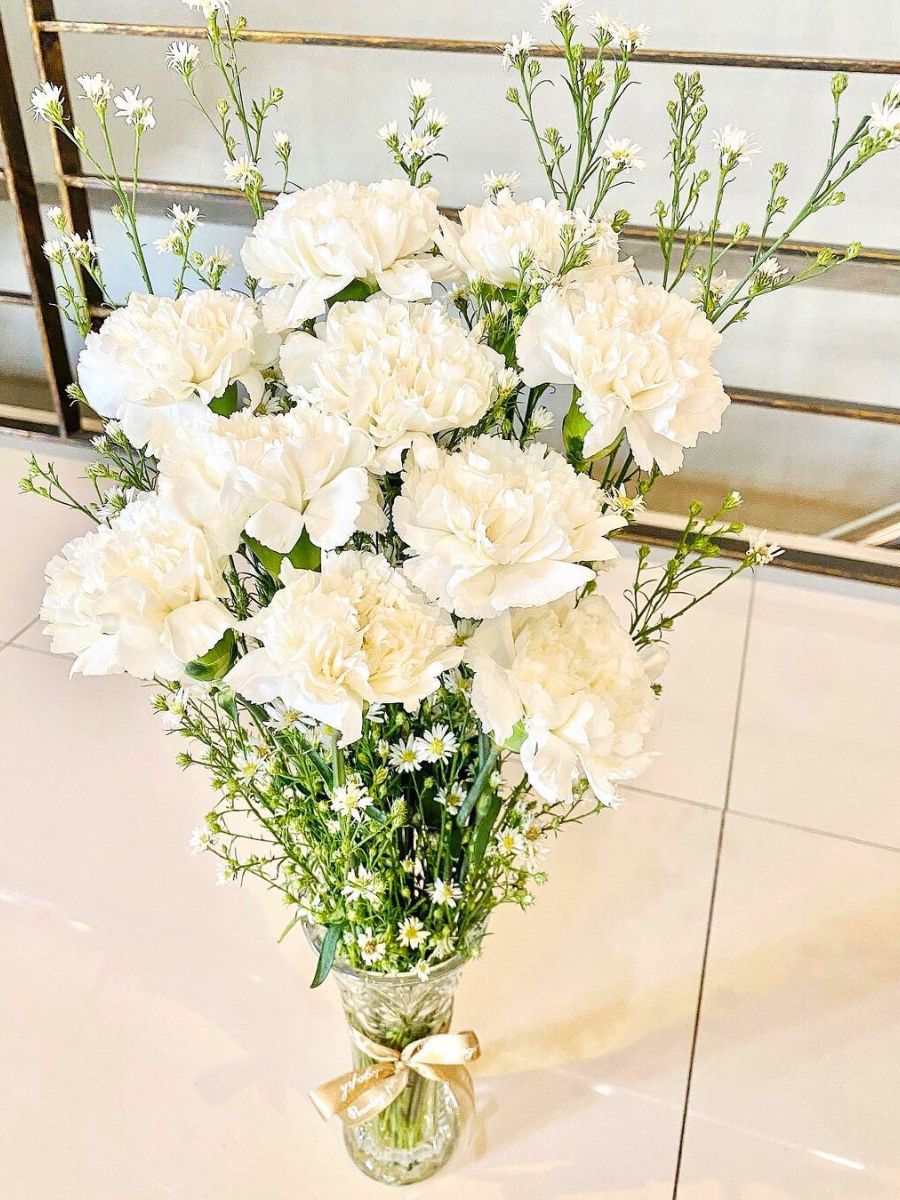
Pink Carnation
The pink carnation is frequently offered as a token of sincere thanks to express "thank you" and "I won't forget you." Carnations in a soft pink color stand for the affection and appreciation of a mother. These beautiful flowers in a delicate pink color represent the mother’s protective, nurturing, and unconditionally lovable nature.
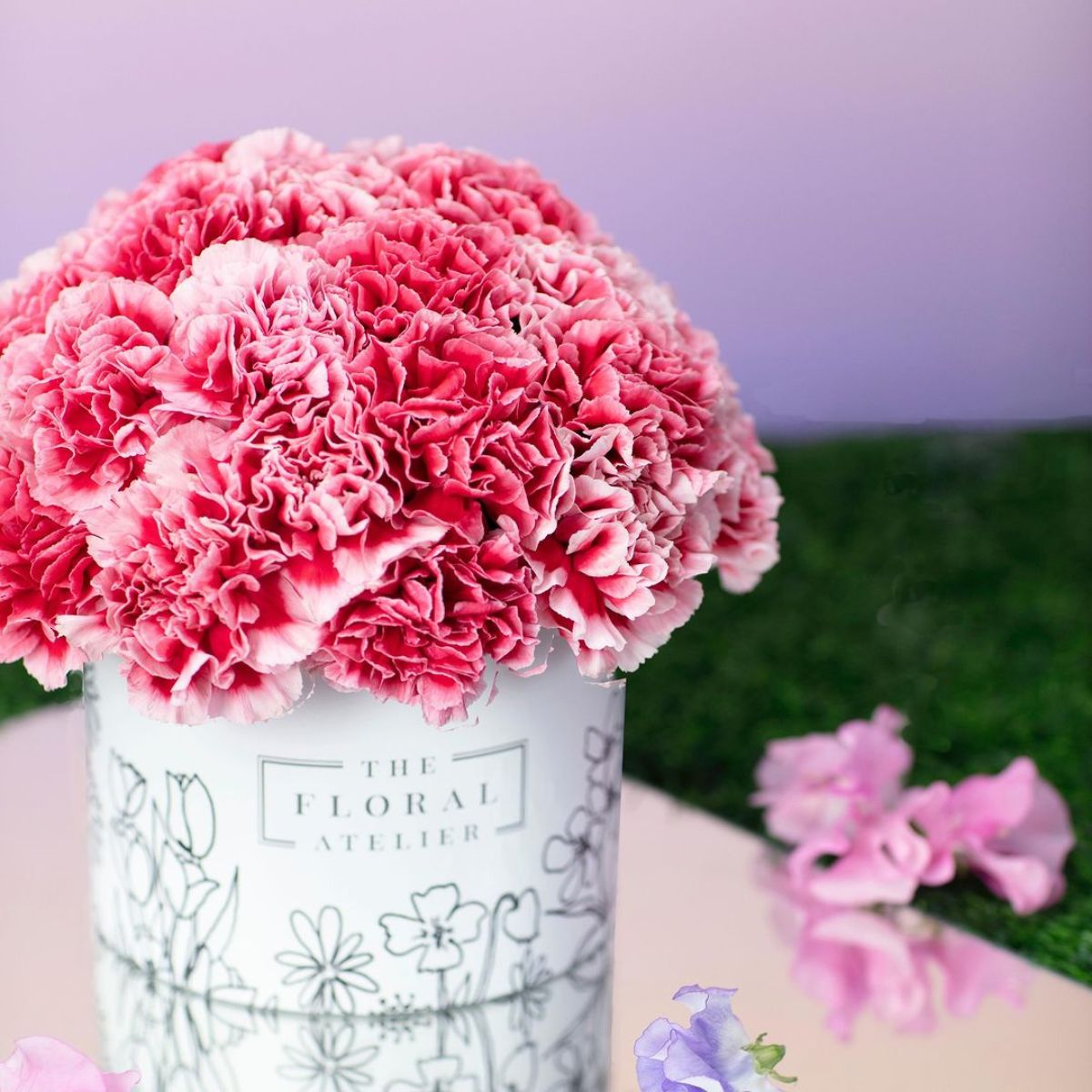
Red Carnation
While a pale red carnation denotes appreciation and the phrase 'my heart bleeds for you', a rich red carnation stands for intense love and affection. The bright red petals of the red carnation are said to symbolize a pounding heart that is also overflowing with love.
They are a very popular choice for Mother's Day and are given as a gift to living mothers. Their deep red petals symbolize love and a beating heart, rather than loss. Red carnations also represent passion and uniqueness, aside from that.

The history, symbolism, and beauty of carnation flowers make them a fitting choice to celebrate Mother's Day and honor the incredible superheroes mothers are.
How to Care for Carnation Bouquets
If you decide to gift carnations for Mother's Day, the good thing is that they are long-lasting if cared for properly, lasting about two to three weeks. Depending on whether your fresh flowers arrive as a wrapped bouquet or arranged in a vase, here's how to best care for cut carnations.
- If carnations are pre-arranged in a vase, don't change the water or cut the stems until two or three days after receiving them.
- If you receive a wrapped or hand-tied bouquet, cut the stems at a 45-degree angle before putting them in water. This will help the flowers absorb water rather than sitting flat on the bottom of the vase. Re-cut the stems about half an inch or so and change the water every two to three days.
- Change the water every couple of days to avoid bacterial growth in the water.

The best part is that arrangements made with carnations last for a long time and remain fresh-looking and vibrant with minimal care. Need any more reasons to make carnations your mom's new favorite flower to celebrate her day?

